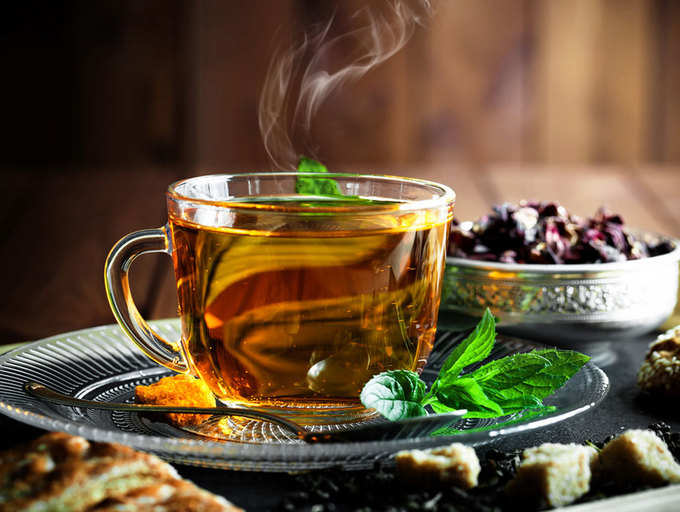In a world filled with stress and constant stimulation, finding effective ways to unwind and promote quality sleep has become increasingly crucial. Among the myriad of sleep aids available, one option stands out for its natural ingredients and soothing properties: Sleepy Time tea. This herbal blend has gained popularity for its ability to calm the mind and body, making it a staple in many households seeking a restful night’s sleep. In this comprehensive guide, we delve into the origins, ingredients, benefits, and potential drawbacks of Sleepy Time tea, shedding light on its efficacy as a sleep aid.
The Origins of Sleepy Time Tea
The story of Sleepy Time tea dates back to the early 1970s when it was first introduced by Celestial Seasonings, a pioneering tea company based in Boulder, Colorado. The creation of Sleepy Time tea was inspired by the company’s commitment to harnessing the natural healing properties of herbs and botanicals to promote well-being.
Ingredients of Sleepy Time Tea
At the heart of Sleepy Time tea are a select group of herbs and botanicals known for their calming and relaxing effects. While the exact formulation may vary slightly depending on the brand, the primary ingredients typically include:
Chamomile: Renowned for its mild sedative properties, chamomile has been used for centuries to promote relaxation and alleviate insomnia. It contains compounds like apigenin, which bind to receptors in the brain, inducing sleepiness and reducing anxiety.
Spearmint: Spearmint not only adds a refreshing flavor to Sleepy Time tea but also offers its own therapeutic benefits. It has been traditionally used to soothe digestive issues and relieve stress, contributing to an overall sense of relaxation.
Lemongrass: Lemongrass adds a citrusy aroma to Sleepy Time tea while imparting subtle health benefits. Rich in antioxidants, lemongrass may help reduce inflammation and promote better sleep by calming the nerves.
Tilia Flowers (Linden): Tilia flowers, also known as linden flowers, are prized for their delicate flavor and mild sedative effects. They contain compounds that have been shown to reduce anxiety and promote relaxation, making them a valuable addition to SleepyTime tea.
Hawthorn: Hawthorn berries are often included in Sleepy Time tea for their cardiovascular benefits. While not directly related to sleep, hawthorn may support overall heart health, which is essential for a restful night’s sleep.
The Benefits of SleepyTime Tea
Promotes Relaxation: The combination of herbs and botanicals in Sleepy Time tea works synergistically to calm the mind and body, making it easier to unwind and prepare for sleep.
Reduces Anxiety: Chamomile, lemongrass, and tilia flowers are known for their anxiolytic properties, helping to alleviate stress and anxiety that may interfere with sleep.
Improves Sleep Quality: By promoting relaxation and reducing anxiety, Sleepy Time te’a can help improve the overall quality of sleep, leading to a more restorative and rejuvenating experience.
Natural and Non-Habit Forming: Unlike some sleep medications, Sleepy Time te’a is made from natural ingredients and is non-habit forming, making it a safe and gentle option for regular use.
Supports Digestive Health: Spearmint and lemongrass have been traditionally used to soothe digestive issues, which can be beneficial for promoting better sleep, as digestive discomfort is a common disruptor of sleep.
Potential Drawbacks of Sleepy Time Tea
While Sleepy Time te’a offers many potential benefits, it’s essential to be aware of some potential drawbacks:
Individual Sensitivities: Some individuals may be sensitive to certain herbs or botanicals in SleepyTime tea, experiencing adverse reactions such as allergic reactions or gastrointestinal discomfort.
Limited Efficacy for Severe Sleep Disorders: While Sleepy Time te’a can be helpful for occasional sleep disturbances or mild insomnia, it may not be sufficient for more severe sleep disorders that require medical intervention.
Caffeine Sensitivity: Although Sleepy Time te’a is caffeine-free, individuals who are highly sensitive to caffeine may still experience some degree of stimulation, especially if they consume large quantities or drink it close to bedtime.
Pregnancy and Lactation: Pregnant or breastfeeding women should exercise caution when consuming herbal teas, including Sleepy Time tea, as some ingredients may not be safe during pregnancy or lactation.
Tips for Brewing the Perfect Cup of Sleepy Time Tea
Use Fresh, Filtered Water: Start with fresh, filtered water to ensure the best possible flavor and quality.
Steep for the Recommended Time: Follow the instructions on the packaging for the optimal steeping time, typically around 5-7 minutes.
Add Honey or Lemon for Flavor: Enhance the taste of Sleepy Time te’a by adding a touch of honey or a squeeze of fresh lemon, if desired.
Create a Relaxing Ritual: Incorporate Sleepy Time te’a into your bedtime routine as a relaxing ritual to signal to your body that it’s time to unwind and prepare for sleep.
Experiment with Temperature and Steeping Time: Adjust the temperature of the water and the steeping time to suit your personal preferences and desired strength of flavor.
Conclusion
Sleepy Time tea offers a natural and gentle way to promote relaxation and improve sleep quality, thanks to its carefully selected blend of herbs and botanicals. Whether enjoyed as part of a nightly routine or used occasionally to combat sleep disturbances, Sleepy Time te’a has earned its reputation as a soothing and effective sleep aid. By understanding its origins, ingredients, benefits, and potential drawbacks, you can make an informed decision about whether Sleepy Time te’a is the right choice for you on your journey to better sleep.







